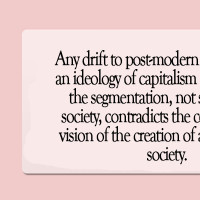- Sunday, 19 May 2024
Africa Asserts Right To Voice
In the wake of a series of military takeovers in Africa in the last four years, the world is jolted to mull over the trend in a new light. Some lamentations over the power-grab got drowned by lusty sounds of support from different parts of the continent. Mali, Chad, Guinea, Sudan, Burkina Faso, Niger and Gabon witnessed military takeovers since 2020 and after. It is a chain reaction triggered by decades of overlordship, imposed chiefly by former colonists that could not reconcile to their “losses”, and they reinvented ways of profiteering from impoverished lands, which they colonised and exploited for generations. After independence, some families ruled for decades. For instance, Ali Bongo Ondimba regime in Gabon was a puppet at the hands of France and other foreign overlords who paid it to monopolise the country’s natural resources. Foreign “investors” ferreted out three-fourths of the profits while the rest was shared by the ruling clique and the state coffers.
The former colonies were short changed by foreign governments and companies that corrupted local leaders and made enormous profits. Ondimba amassed billions of dollars, more than what the Marcoses stole in the Philippines during their two-decade rule until People Power movement compelled them to live in exile in 1986. The Ondimba family ruled for 56 years in Gabon before being forced out of power last year.
In March, the military junta in Niger ordered the 1,000 US troops stationed in the country to quit. Earlier, in December 2023, France was directed to withdraw its troops. Ondimba publicly claimed having rejected an offer of $100 million to him if he maintained status quo regarding French economic and military presence in the country. Paris did not refute the charges in any convincing way.
Call for space
The former colonial continent of Africa has begun asserting itself for a fair share of space on the global stage and mutual benefits. Its nations are in a defiant mood. They want to be heard and respected instead of having to accept what others dictated from high towers. Their voices, of late, have grown louder, clearer and regular. Condescending attitude towards Africa is no longer acceptable. People are rejecting the practice of unquestioningly accepting prescriptions prepared by foreign powers for addressing multifarious local issues. So far, an agenda is almost invariably initiated by powers whose interests are rarely, if ever, adversely affected as a result.
Although dwellers of a continent with the largest natural resources, African people are among the poorest in the world. Oil-rich Libya is a case in point, which has been torn asunder after the 2011 violent changeover. Its leader Muammar Gaddafi’s brutal murder is now being widely discussed with renewed interest. People have begun rejecting many of the allegations against him by forces that wanted him out of the scene for their own excessive influence on the North African country’s oil resources and geo-strategic position.
Gaddafi stood for a model of governance that gave free education up to the highest level, free and extensive health service, and right to housing. His vision was to demonstrate Libya to be a role model for Arabs and the rest of Africa. Undoubtedly an authoritarian, Gaddafi ruled for more than 40 years since 1969 until elements, instigated by foreign forces, infiltrated protest rallies and brought about his end. The social welfare scheme he introduced were a source of envy to countries not only in the Arab world but also the developing countries.
Libya today is a divided country. In October 2020, the United Nations brokered a ceasefire between two rival forces that each had control over large parts of the country. Although the guns might be generally silent for the last two and a half years, the two sides continue to have large areas under their respective control. It is a condition that greatly risks absence of the prerequisites essential for a unified, independent and sovereign nation. Consequently, Libyan people’s woes have spiralled. Corruption is rampant, with public dissatisfaction running high. This has also led people to review the Gaddafi regime from a new perspective.
Gaddafi’s Africa-first policy and efforts at creating a pan-African currency rang alarm bells to the interests of profiteers from some industrialised nations that had been bribing a few top leaders in different capitals and managed to take away most of the profits made from exploiting local natural resources. Profits were also used as slush money for local leaders and a small portion went to the official treasury. Significant sums of the state treasury were spent on buying weapons supplied by industrial nations at hefty prices. That meant the killing machines in the richer countries were kept busy rolling out huge profits.
Deceit at work
Outsiders bribed African leaders and their cronies. The ill-gotten wealth found its way to foreign banks in the very countries from where the bribe offer arrived. If the approach failed, military coups were encouraged or engineered covertly or overtly. That was how huge natural resources are misused at the expenses of people who languished in deep poverty and chronic malnourishment. Bribing and corrupting local leaders to introduce ruinous policies that ferreted insane profits to foreign companies and governments led to sheer impoverishment of local populations.
That explains why military coup leaders, in the recent developments, are hailed as patriots bent on correcting the wrong policies previous regimes pursued to the detriment of the general public. They promise to introduce appropriate course corrections. Time should tell what events follow and with what impact. Africa accounts for almost half of all the military coup attempts and successful ones. Of the nearly 500 attempted coups, 220 were successful, of which 109 have been in Africa. Such developments are generally—and rightly so—condemned.
While the West in large measure is losing its clout in Africa, China made a calculated move in engaging in long-term investments for two decades, with long-term and multiple benefits. Russia’s presence has also been active and free from racist approach. Why is Africa reaching out to China and Russia, both of which are considered targets for a shower of regular sanctions from Western powers? African people nurse long memories. Neither China nor Russia colonised or enslaved Africa and its people. That’s a huge start up for creating a congenial atmosphere and substantive cooperation between the once colonised continent and Sino-Russian superpower combine.
(Professor Kharel specialises in political communication.)














